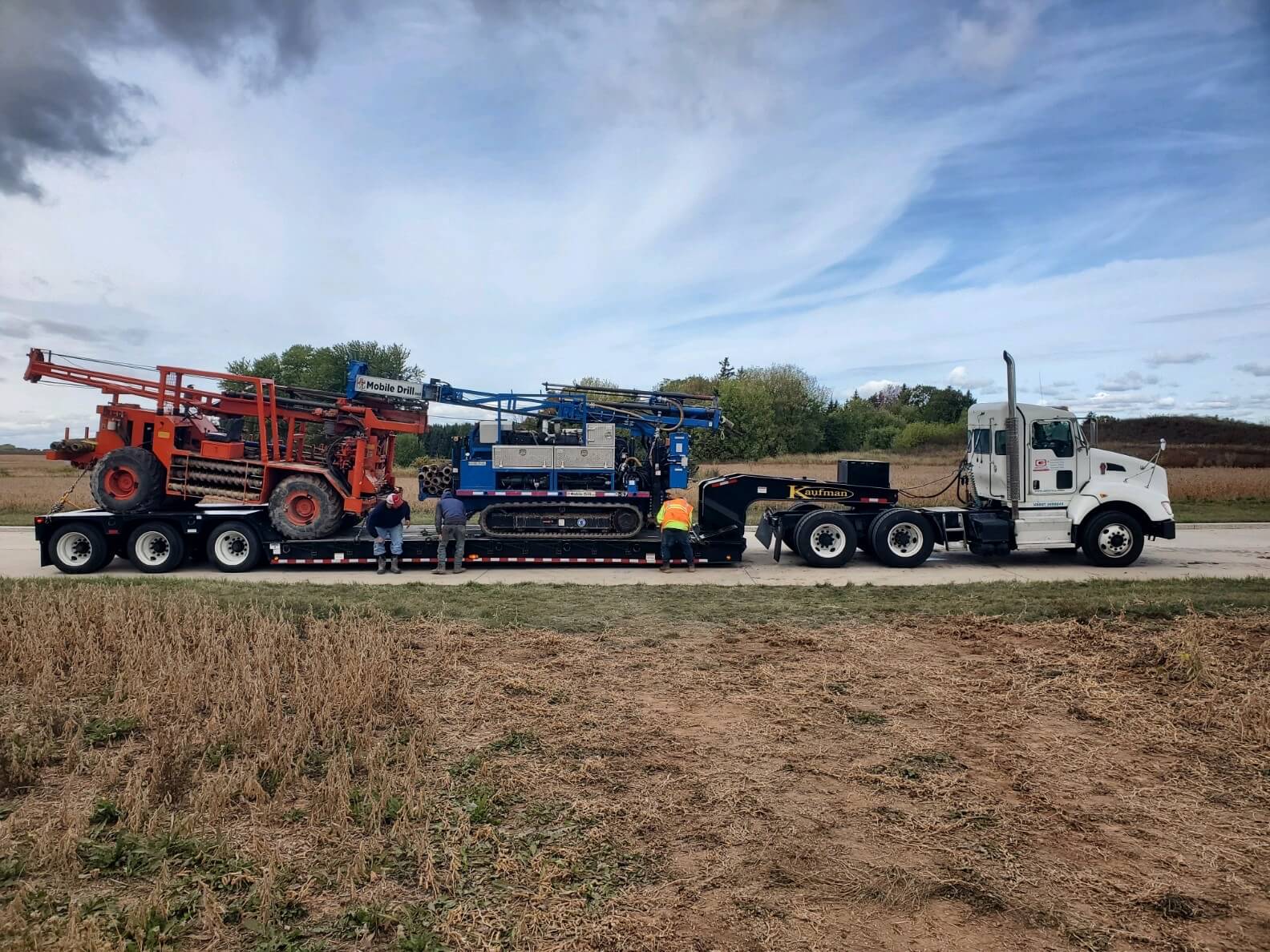Geotechnical drilling is critical to understanding the ground conditions before any construction or environmental project. In Virginia, the diverse geology—from coastal plains to mountainous regions—requires thorough investigation to ensure the stability and safety of structures. Water borings, a specific type of geotechnical drilling, help assess soil and groundwater conditions, providing essential data for engineers and planners.
What is Geotechnical Drilling?
Geotechnical drilling involves drilling into the ground to collect soil and rock samples for analysis. These samples help determine the physical and chemical properties of the subsurface, which are vital for designing foundations, assessing environmental hazards, and ensuring that construction projects are safe and sustainable. This process is used in various applications, including building new infrastructure, environmental site assessments, and land development.
Importance of Water Borings in Geotechnical Investigations
geotechnical Drilling Virginia Water borings are a specialized type of drilling used to gather information about groundwater levels and soil conditions. This data is crucial in Virginia, where fluctuating water tables and varied soil types can impact construction projects. Water borings help identify potential issues such as soil erosion, groundwater contamination, or unsuitable soil layers, allowing engineers to design more effective foundations and drainage systems.
Types of Geotechnical Drilling Techniques Used in Virginia
- Rotary Drilling: Commonly used for deep borings, rotary drilling employs a rotating drill bit to cut through rock and soil. It’s highly versatile and effective for most geotechnical investigations.
- Auger Drilling: This method uses a helical screw to bring soil to the surface, ideal for shallow, softer soils. It’s quick and cost-effective but limited to less complex conditions.
- Percussion Drilling: Percussion or cable tool drilling uses repeated hammering to break rock and soil. It’s best for harder ground conditions but slower than rotary drilling.
- Cone Penetration Testing (CPT): CPT involves pushing a cone into the ground at a constant rate to measure resistance. It’s excellent for detailed soil profiling without needing to retrieve samples.
Each technique has its advantages, and the choice depends on factors like soil type, project requirements, and depth needed.
Key Challenges in Geotechnical Drilling in Virginia
Geotechnical drilling in Virginia can present unique challenges due to the state’s varied geology. Rocky terrain, clay soils, and high groundwater levels can complicate drilling operations. Additionally, environmental regulations require careful planning to minimize disruption to local ecosystems. Seasonal weather changes, such as heavy rains or freezing temperatures, can also impact drilling schedules and conditions.
How to Choose a Geotechnical Drilling Company in Virginia
Selecting the right geotechnical drilling company is crucial for the success of your project. Key factors to consider include:
- Experience: Look for a company with extensive experience in Virginia’s geology and local conditions.
- Equipment: Modern, well-maintained equipment ensures efficient and reliable results.
- Certifications: Check for certifications and compliance with industry standards, indicating professionalism and quality.
Ask potential contractors about their approach to challenges, their safety record, and their familiarity with Virginia’s specific drilling regulations.
Case Studies: Successful Geotechnical Drilling Projects in Virginia
Geotechnical drilling has been instrumental in many successful projects across Virginia, from large-scale commercial developments to critical infrastructure projects like bridges and highways. For example, in Northern Virginia, detailed water borings were used to design stable foundations for new residential complexes, ensuring safety despite the area’s high groundwater levels.
Regulatory Considerations for Geotechnical Drilling in Virginia
geotechnical Drilling Virginia water borings has strict regulations to protect its environment and public safety. Drilling companies must adhere to state and local rules, including obtaining permits, conducting environmental assessments, and following best practices to avoid contamination. Understanding and complying with these regulations is essential to avoid legal issues and project delays.
Costs Associated with Geotechnical Drilling and Water Borings
The cost of geotechnical drilling can vary widely based on several factors, including:
- Depth and Complexity: Deeper and more complex borings are generally more expensive.
- Location: Urban areas may incur higher costs due to access restrictions and logistical challenges.
- Equipment and Technique Used: Advanced methods like CPT or percussion drilling can increase costs.
Planning your project with clear objectives can help optimize costs while ensuring high-quality data collection.
Future Trends in Geotechnical Drilling and Water Borings in Virginia
The geotechnical industry is evolving with new technologies like remote sensing, automated drilling rigs, and data analytics, making drilling more precise and efficient. Sustainability is also becoming a priority, with eco-friendly practices such as minimizing site disturbance and recycling drilling fluids gaining traction. These trends are expected to improve the efficiency and environmental impact of geotechnical drilling in Virginia.
Conclusion:
Proper geotechnical drilling and water borings are essential for safe and successful construction projects in Virginia. By understanding subsurface conditions, engineers can design structures that are resilient to local soil and water conditions, avoiding costly and potentially dangerous issues down the line.
12. FAQs about Geotechnical Drilling and Water Borings in Virginia
- How long does geotechnical drilling take? The duration depends on the project’s scope but generally ranges from a few days to several weeks.
- Is geotechnical drilling safe? Yes, when performed by experienced professionals following safety standards.
- What impact does drilling have on the environment? Responsible drilling minimizes impact, and adherence to regulations helps protect the surrounding area.

